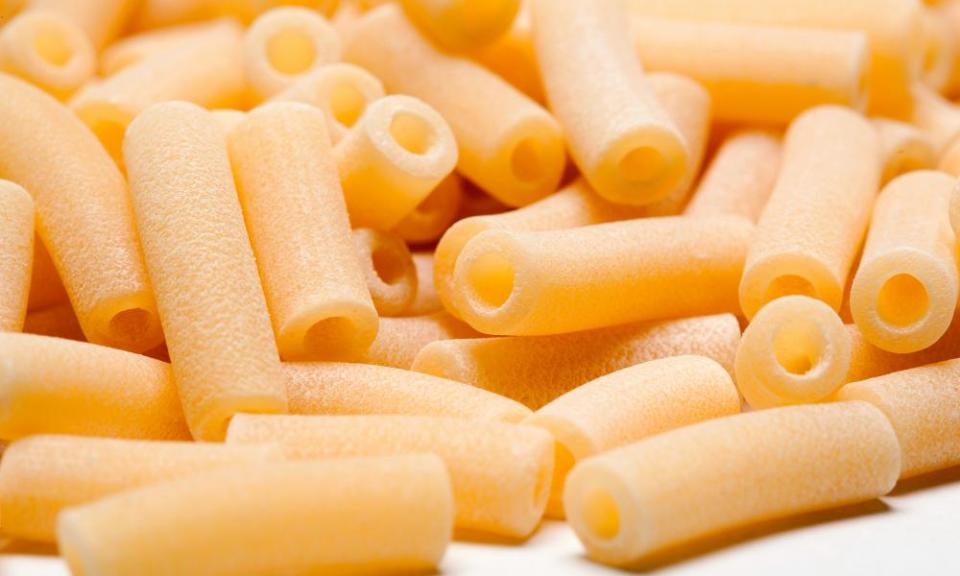Carbohydrates, fibre and a healthy diet

Low-carb does not mean no-carb, nor does it mean low-fibre (Blow to the low-carb diet as WHO report says fibre cuts early deaths, 11 January). Your article appears to confuse low carbohydrate and low grain consumption. Proponents of a low-carb diet typically encourage the replacement of highly processed carbohydrates with fruits, vegetables, nuts and seeds (all sources of carbohydrate), thereby increasing the amount of fibre consumed as well as the intake of vitamins, minerals and phytonutrients.
The study actually concluded that the certainty of evidence for relationships and critical outcomes was graded moderate for dietary fibre and low to moderate for whole grains (The Lancet: “Carbohydrate quality and human health: a series of systematic reviews and meta-analyses”). In addition, it included the caveat that high levels of whole grains could cause depletion of iron and other minerals in individuals who are low in these.
As this was an epidemiological and observational study, association can be suggested but causation cannot be proved; it could have been that the improved outcomes were due to other factors, or a combination of factors.
Further sounding a note of caution in interpreting the findings, Professor Gary Frost of Imperial College London commented that the reliance on self-reported intake of carbohydrate, prone to error and misreporting, was a limitation of the study and that caution should be exercised in interpreting the data as the number of studies is small and the results are heterogeneous.
It can be suggested that humans existed for thousands of years without consuming the “healthy whole grains” that we are urged to eat today, and that the diseases such as type 2 diabetes, heart disease and cancer that plague us today were rare or non-existent. Your headline does not help readers to interpret this research, and undermines the great results that Diabetes UK and others are achieving with their promotion of a low-carbohydrate diet.
Sue Morgan
Winchester
• Your article suggests that diets such as the Atkins diet may be harmful because they do not provide enough dietary fibre. Dietary fibre is certainly vitally important for health, but the article fundamentally misunderstands the distinction between carbohydrates and fibre. Vegetables are stuffed full of fibre – it is primarily cellulose, the main stuff that plants are made of. It is indigestible carbohydrate.
Since diets like the Atkins encourage eating protein and fibrous veg over carbohydrate-rich foods, like bread, pasta and chips, to state that “low-carb” diets are consequently going to be low in fibre is untrue and misleading.
Dr Nick Evans
Institute for Developmental Sciences, Faculty of Medicine, University of Southampton
• Re your article on the ketogenic diet (A fat lot of good, G2, 7 January), it took my fully qualified, highly experienced doctor more than a year to convince me to try going keto. I’ve now been on this diet for 15 months.
A ketogenic diet is not low in fibre as your article states – quite the opposite. You can eat 10 portions of vegetables every day and comfortably remain in ketosis. The key is avoiding any veg with a net carb value of more than about 10% (potatoes and parsnips are off the menu).
The article also states that the keto diet is high in saturated fat and red meat. Fatty red meat is a popular choice for keto dieters but it is by no means necessary (a fact that your article itself highlights in its mention of vegan-keto). Indeed, you can quite easily get by on merely fish and fowl alone without eating any red meat at all. You should also eat plenty of healthy fats, namely hemp oil, olive oil, avocados, nuts, seeds and oily fish. They are easily incorporated, reducing reliance on saturated fats like butter and lard.
Dismissing keto as a dangerous diet fad is not representing it fully or accurately. Ketogenic dieters are generally not the bacon-guzzling saturated fat fanatics we are often portrayed as.
Anna McGuirk
St Albans, Hertfordshire
• Join the debate – email guardian.letters@theguardian.com
• Read more Guardian letters – click here to visit gu.com/letters
• Do you have a photo you’d like to share with Guardian readers? Click here to upload it and we’ll publish the best submissions in the letters spread of our print edition

 Yahoo News
Yahoo News 